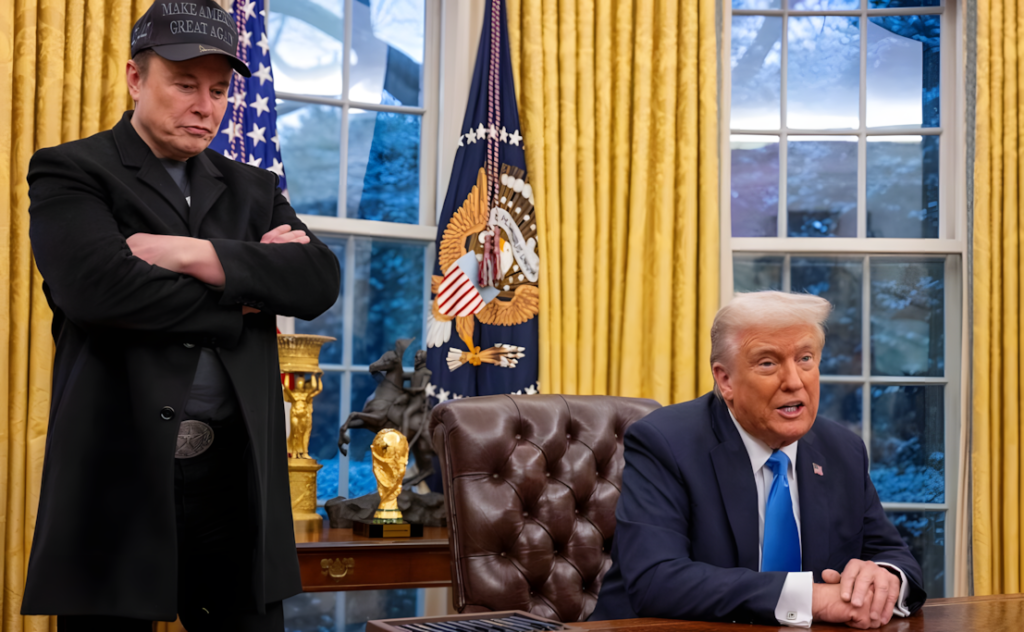In a move that has sent shockwaves through the U.S. federal workforce, President Donald Trump and his advisor, Elon Musk, have initiated a sweeping campaign to drastically reduce the size of the federal bureaucracy. This initiative has led to the termination of over 9,500 federal employees and the voluntary departure of an additional 75,000 through buyout offers. The ramifications of this bold strategy are profound, raising questions about the underlying motivations and the potential impact on essential government services.
The Genesis of the Initiative
President Trump has long advocated for a leaner federal government, citing concerns over excessive spending and bureaucratic inefficiencies. Entrusting Elon Musk with the helm of the newly established Department of Government Efficiency (DOGE), the administration aims to “audit” and streamline federal operations. Musk, known for his disruptive approach in the tech industry, has applied similar principles to the public sector, leading to rapid and extensive changes.
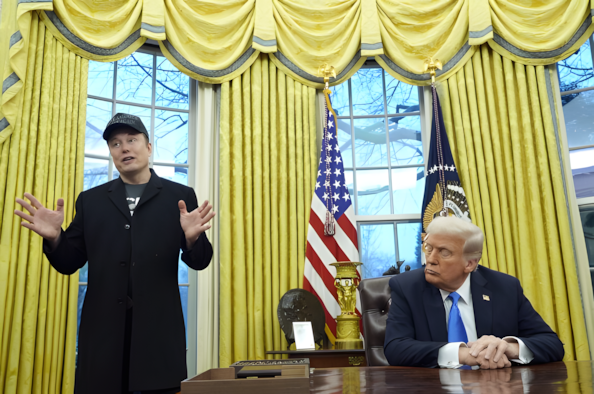
Scope of the Layoffs
The layoffs have spanned multiple federal agencies, including the Departments of Interior, Energy, Veterans Affairs, Agriculture, and Health and Human Services. A significant portion of those dismissed were probationary employees with less than one year of service, who possess fewer employment protections. This strategy has facilitated swift terminations but has also raised concerns about the loss of fresh talent and perspectives within the government.
In addition to the involuntary terminations, the administration offered a “Fork in the Road” buyout program, which resulted in approximately 75,000 employees opting for voluntary resignation. While this figure falls short of the administration’s 10% reduction target, it represents a substantial contraction of the federal workforce.
Financial Implications
The primary justification for these drastic measures is fiscal responsibility. The federal government faces a staggering $36 trillion in debt and a $1.8 trillion deficit from the previous year. President Trump asserts that reducing the federal workforce will curtail wasteful spending and enhance efficiency. Elon Musk’s team has reported $55 billion in savings thus far, a figure that, while significant, is subject to scrutiny regarding its accuracy and the long-term consequences of such cuts.
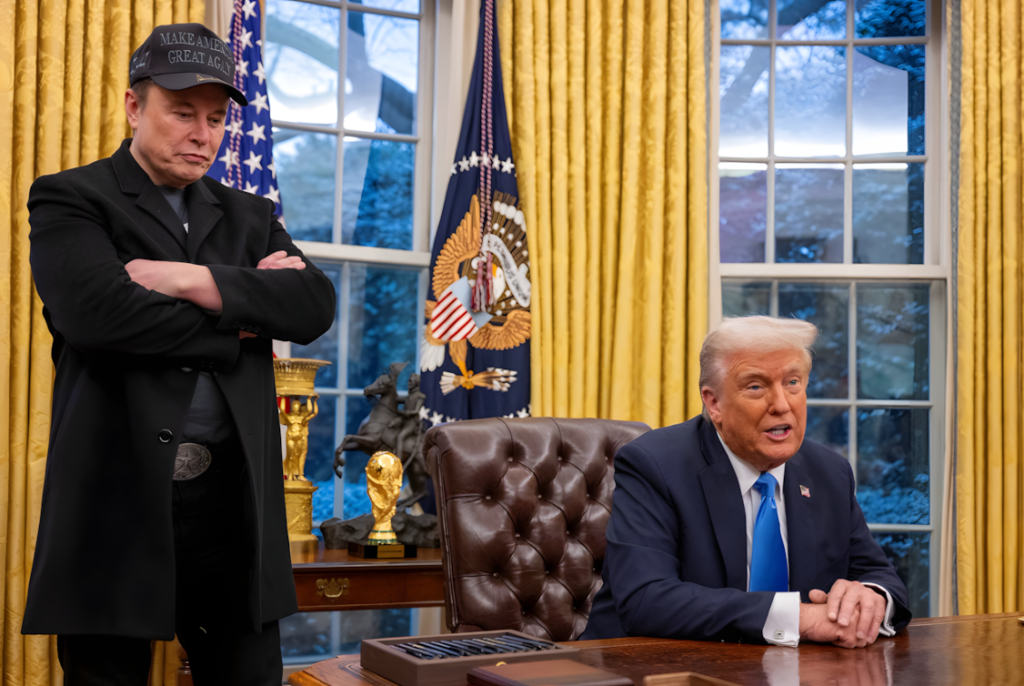
Legal and Constitutional Challenges
The aggressive downsizing has not proceeded without legal hurdles. Multiple lawsuits have been filed challenging the authority of DOGE and the legality of the mass terminations. Critics argue that President Trump is encroaching upon the legislative branch’s constitutional authority over federal spending. Despite these challenges, a federal judge recently allowed the layoffs to continue, underscoring the contentious nature of the administration’s actions.
Impact on Essential Services
The rapid reduction in personnel has raised alarms about the continuity and quality of essential government services. For instance, the Internal Revenue Service (IRS) is preparing for significant layoffs, which could impede tax collection efforts, especially with the April 15 filing deadline approaching. Similarly, cuts at the Department of Veterans Affairs may affect research on critical health issues, and reductions at the National Nuclear Security Administration have necessitated partial reversals to retain essential staff.
Moreover, the downsizing has led to the halting of preventive forest management programs, a concern amplified by recent devastating wildfires in California. The suspension of such programs could exacerbate the risk of future natural disasters, highlighting the potential unintended consequences of the administration’s cost-cutting measures.
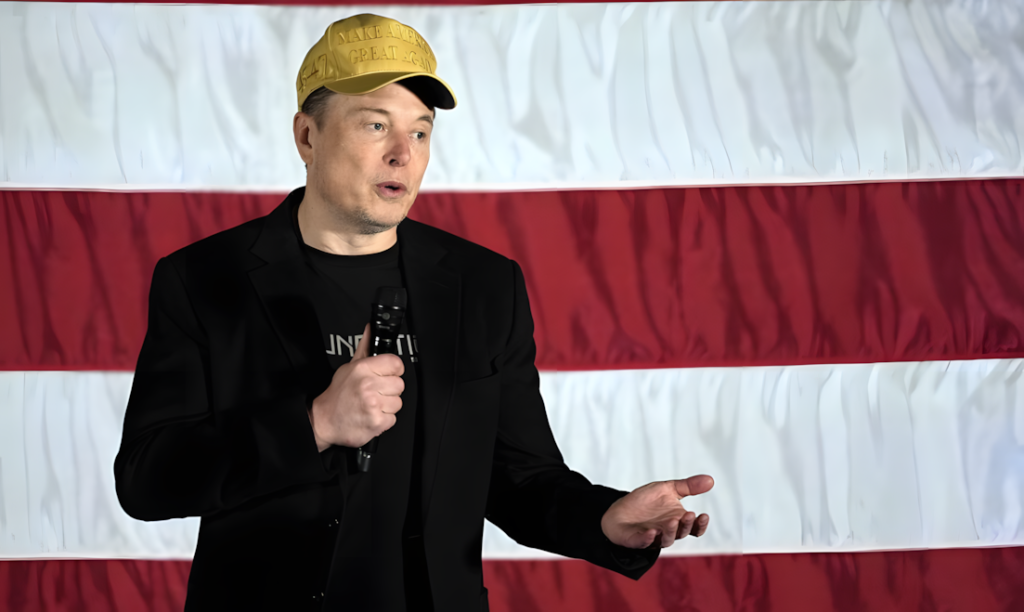
Employee Sentiment and Public Perception
The abrupt terminations have left many federal employees feeling betrayed and demoralized. Nick Gioia, a veteran with 17 years of service in the Army and the Department of Defense, expressed his disillusionment after being dismissed from the USDA’s Economic Research Service just months into his tenure. Such sentiments reflect a broader sense of uncertainty and frustration among the federal workforce.
Public opinion is divided. Supporters of the administration view the cuts as a necessary step toward reducing government overreach and promoting fiscal discipline. Conversely, detractors argue that the hasty and sweeping nature of the layoffs undermines essential public services and reflects a disregard for the dedicated individuals who serve the nation.
Elon Musk’s Expanding Influence
Elon Musk’s role in this initiative has been both pivotal and controversial. Appointed as a “special government employee,” Musk wields considerable influence over federal operations, a move that has raised ethical and constitutional questions. His approach, characterized by rapid decision-making and a reliance on a cadre of young engineers with limited government experience, has been criticized for prioritizing ideological objectives over pragmatic governance.
Musk’s extensive business interests, including significant government contracts with his companies, have further complicated perceptions of his role. Concerns about potential conflicts of interest have been amplified by the lack of traditional oversight and the unprecedented consolidation of power within DOGE.
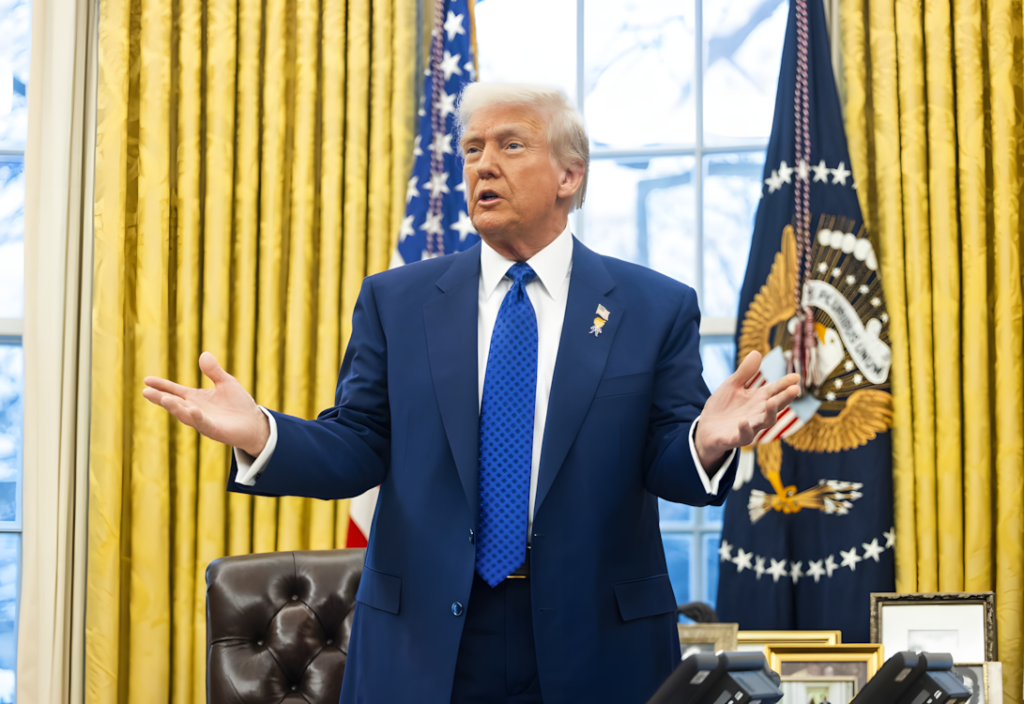
Future Trajectory
Looking ahead, the administration shows no signs of slowing its efforts to reshape the federal government. Plans are underway for additional layoffs, with agencies such as the Department of Homeland Security potentially facing significant personnel reductions. The long-term impact of these actions remains uncertain, with potential implications for national security, public health, and the overall efficacy of government operations.
In conclusion, the Trump-Musk initiative to slash 10,000 government jobs represents a bold and contentious effort to redefine the scope and function of the U.S. federal government. While proponents argue it is a necessary correction to bureaucratic excess, critics contend it jeopardizes essential services and undermines the morale of public servants. As this situation continues to evolve, its effects will undoubtedly reverberate throughout the nation, influencing public discourse and the future of federal governance.
